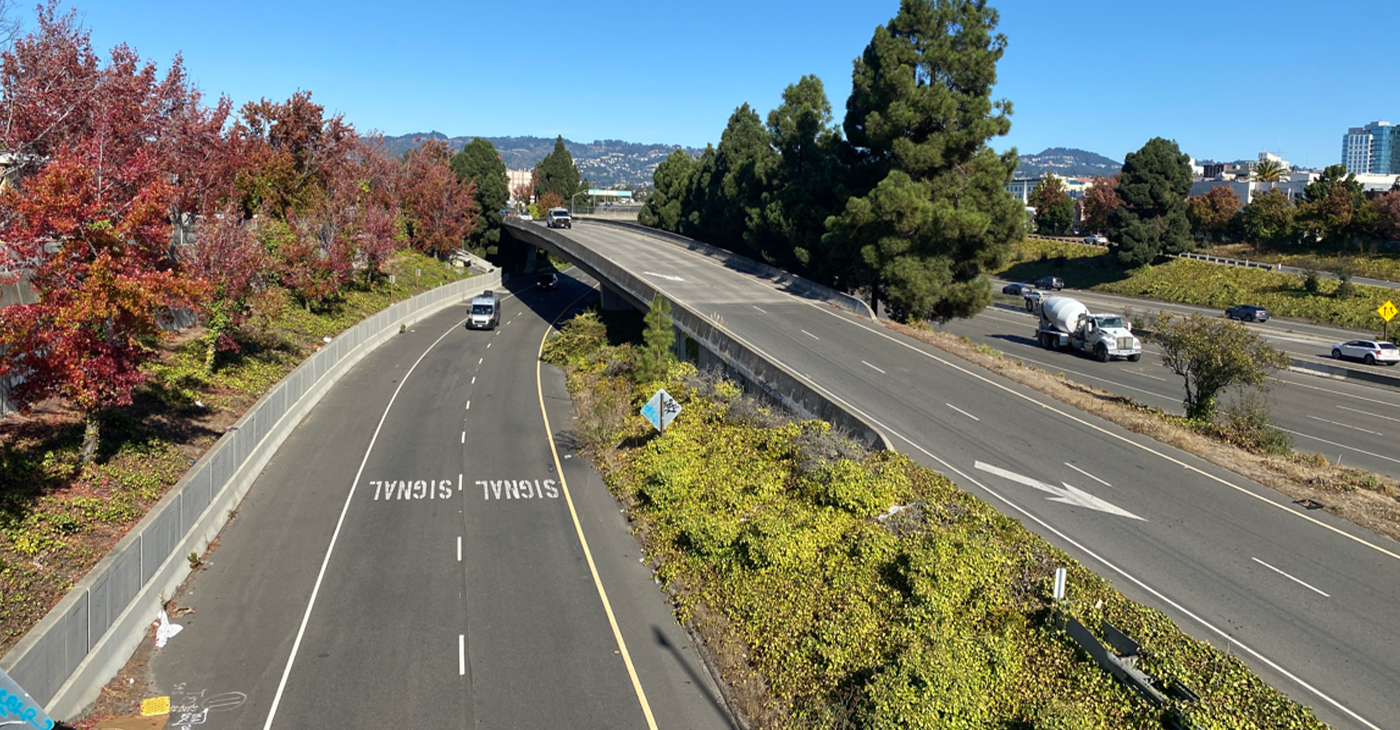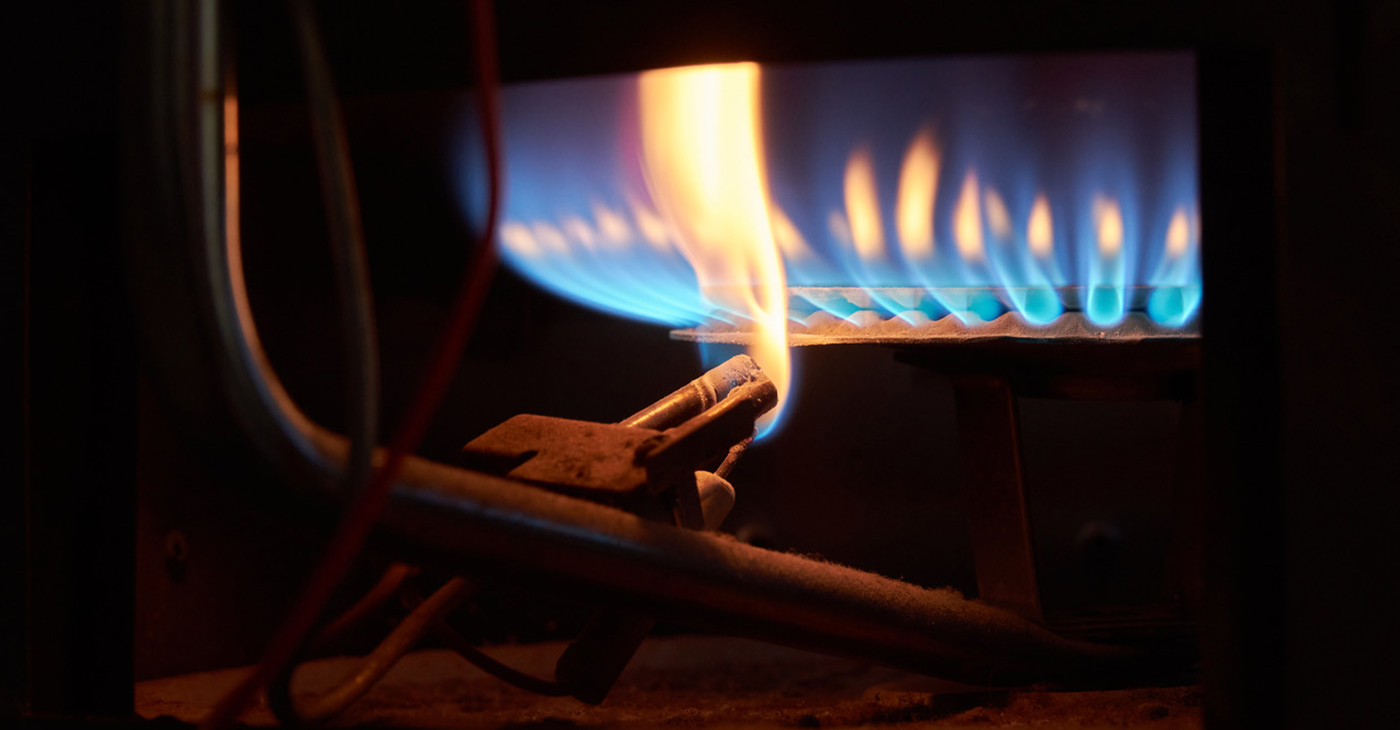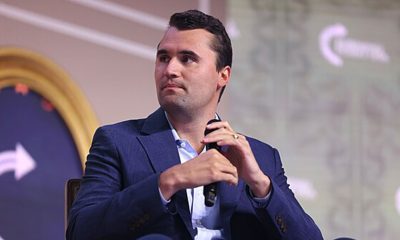Environment
Pope Francis Visits South America, Calls for Climate Justice for the World’s Poor
Pope Francis arrived in Ecuador on Sunday, visiting his home continent for a three-country tour that includes Bolivia and Paraguay.
The pope’s visit to Quito—Ecuador’s capital city—attracted over one million people who traveled from across the country and camped out overnight to get a good view of the pontiff.
Thepope had been expected to address the exploitation of the Amazon—the planet’s most ecologically important rainforest—following the release of his extensive encyclical on the environment.
The encyclical reveals his deep scientific, economic and social knowledge surrounding the causes and effects of “the harm we have inflicted on [the planet] by our irresponsible use and abuse of the goods with which God has endowed her.”
In accordance with Francis’ concern for the poor, the encyclical asserts that while human-induced global warming—based on “a very solid scientific consensus”—concerns all people, “its worst impact will probably be felt by developing countries” and the world’s neediest populations.
Known informally as “the pope of the poor,” his visit to the region has focused on a message that uplifts family values, communal love and unity.
“The people of Ecuador are beyond excited and pleased, the majority of them being Catholic,” said Azalia Cruz, a Post correspondent in Quito. “In Quito, it was extremely cold and it was raining a lot when he arrived. Despite this, thousands of people gathered to greet the Pope.”
In one of Latin America’s oldest Catholic churches, Francis pressed a variety of issues.
Addressing ecological concerns, he reminded the Ecuadorean people that “when exploiting Ecuador’s natural resources, the focus should not be on instant gratification” and that appropriate environmental caution and gratitude must be paid when managing these resources.
“Groups of environmentalists opposing petroleum extraction in the Amazonian Yasuní National Park were trying to get a letter to the pope to get a statement out of him,” said Cruz.
These groups have come together in protest to Ecuadorean President Rafael Correa’s intention to open the park’s untouched interior for oil extraction, which will strongly affect the lives of the region’s indigenous tribes and the environment around them, as it has in the past.
Over many years, Ecuador and its peasant and indigenous populations have been involved in ongoing international legal battles with Chevron, accusing the oil company of deliberately dumping more than 18 billion gallons of toxic wastewater and 17 million gallons of crude oil and leaving behind hundreds of open pits filled with hazardous waste.
Activism
Past, Present, Possible! Oakland Residents Invited to Reimagine the 980 Freeway
Organizers ask attendees coming to 1233 Preservation Park Way to think of the event as a “time portal”—a walkable journey through the Past (harm and flourishing), Present (community conditions and resilience), and Future (collective visioning).

By Randolph Belle
Special to The Post
Join EVOAK!, a nonprofit addressing the historical harm to West Oakland since construction of the 980 freeway began in 1968, will hold a block party on Oct. 25 at Preservation Park for a day of imagination and community-building from 10 a.m. to 4 p.m.
Organizers ask attendees coming to 1233 Preservation Park Way to think of the event as a “time portal”—a walkable journey through the Past (harm and flourishing), Present (community conditions and resilience), and Future (collective visioning).
Activities include:
- Interactive Visioning: Site mapping, 3-D/digital modeling, and design activities to reimagine housing, parks, culture, enterprise, and mobility.
- Story & Memory: Oral history circles capturing life before the freeway, the rupture it caused, and visions for repair.
- Data & Policy: Exhibits on health, environment, wealth impacts, and policy discussions.
- Culture & Reflection: Films, installations, and performances honoring Oakland’s creativity and civic power.
The site of the party – Preservation Park – itself tells part of the story of the impact on the community. Its stately Victorians were uprooted and relocated to the site decades ago to make way for the I-980 freeway, which displaced hundreds of Black families and severed the heart of West Oakland. Now, in that same space, attendees will gather to reckon with past harms, honor the resilience that carried the community forward, and co-create an equitable and inclusive future.
A Legacy of Resistance
In 1979, Paul Cobb, publisher of the Post News Group and then a 36-year-old civil-rights organizer, defiantly planted himself in front of a bulldozer on Brush Street to prevent another historic Victorian home from being flattened for the long-delayed I-980 Freeway. Refusing to move, Cobb was arrested and hauled off in handcuffs—a moment that landed him on the front page of the Oakland Tribune.
Cobb and his family had a long history of fighting for their community, particularly around infrastructure projects in West Oakland. In 1954, his family was part of an NAACP lawsuit challenging the U.S. Post Office’s decision to place its main facility in the neighborhood, which wiped out an entire community of Black residents.
In 1964, they opposed the BART line down Seventh Street—the “Harlem of the West.” Later, Cobb was deeply involved in successfully rerouting the Cypress Freeway out of the neighborhood after the Loma Prieta earthquake.
The 980 Freeway, a 1.6-mile stretch, created an ominous barrier severing West Oakland from Downtown. Opposition stemmed from its very existence and the national practice of plowing freeways through Black communities with little input from residents and no regard for health, economic, or social impacts. By the time Cobb stood before the bulldozer, construction was inevitable, and his fight shifted toward jobs and economic opportunity.
Fast-forward 45 years: Cobb recalled the story at a convening of “Super OGs” organized to gather input from legacy residents on reimagining the corridor. He quickly retrieved his framed Tribune front page, adding a new dimension to the conversation about the dedication required to make change. Themes of harm repair and restoration surfaced again and again, grounded in memories of a thriving, cohesive Black neighborhood before the freeway.
The Lasting Scar
The 980 Freeway was touted as a road to prosperity—funneling economic opportunity into the City Center, igniting downtown commerce, and creating jobs. Instead, it cut a gash through the city, erasing 503 homes, four churches, 22 businesses, and hundreds of dreams. A promised second approach to the Bay Bridge never materialized.
Planning began in the late 1940s, bulldozers arrived in 1968, and after years of delays and opposition, the freeway opened in 1985. By then, Oakland’s economic engines had shifted, leaving behind a 600-foot-wide wound that resulted in fewer jobs, poorer health outcomes, and a divided neighborhood. The harm of displacement and loss of generational wealth was compounded through redlining, disinvestment, drugs, and the police state. Many residents fled to outlying cities, while those who stayed carried forward the spirit of perseverance.
The Big Picture
At stake now is up to 67 acres of new, buildable land in Downtown West Oakland. This time, we must not repeat the institutional wrongs of the past. Instead, we must be as deliberate in building a collective, equitable vision as planners once were in destroying communities.
EVOAK!’s strategy is rooted in four pillars: health, housing, economic development, and cultural preservation. These were the very foundations stripped away, and they are what they aim to reclaim. West Oakland continues to suffer among the worst social determinants of health in the region, much of it linked to the three freeways cutting through the neighborhood.
The harms of urban planning also decimated cultural life, reinforced oppressive public safety policies, underfunded education, and fueled poverty and blight.
Healing the Wound
West Oakland was once the center of Black culture during the Great Migration—the birthplace of the Black Panther Party and home to the “School of Champions,” the mighty Warriors of McClymonds High. Drawing on that legacy, we must channel the community’s proud past into a bold, community-led future that restores connection, sparks innovation, and uplifts every resident.
Two years ago, Caltrans won a federal Reconnecting Communities grant to fund Vision 980, a community-driven study co-led by local partners. Phase 1 launched in Spring 2024 with surveys and outreach; Phase 2, a feasibility study, begins in 2026. Over 4,000 surveys have already been completed. This once-in-a-lifetime opportunity could transform the corridor into a blank slate—making way for accessible housing, open space, cultural facilities, and economic opportunity for West Oakland and the entire region.
Leading with Community
In parallel, EVOAK! is advancing a community-led process to complement Caltrans’ work. EVOAK! is developing a framework for community power-building, quantifying harm, exploring policy and legislative repair strategies, structuring community governance, and hosting arts activations to spark collective imagination. The goal: a spirit of co-creation and true collaboration.
What EVOAK! Learned So Far
Through surveys, interviews, and gatherings, residents have voiced their priorities: a healthy environment, stable housing, and opportunities to thrive. Elders with decades in the neighborhood shared stories of resilience, community bonds, and visions of what repair should look like.
They heard from folks like Ezra Payton, whose family home was destroyed at Eighth and Brush streets; Ernestine Nettles, still a pillar of civic life and activism; Tom Bowden, a blues man who performed on Seventh Street as a child 70 years ago; Queen Thurston, whose family moved to West Oakland in 1942; Leo Bazille who served on the Oakland City Council from 1983 to 1993; Herman Brown, still organizing in the community today; Greg Bridges, whose family’s home was picked up and moved in the construction process; Martha Carpenter Peterson, who has a vivid memory of better times in West Oakland; Sharon Graves, who experienced both the challenges and the triumphs of the neighborhood; Lionel Wilson, Jr., whose family were anchors of pre-freeway North Oakland; Dorothy Lazard, a resident of 13th Street in the ’60s and font of historical knowledge; Bishop Henry Williams, whose simple request is to “tell the truth,” James Moree, affectionately known as “Jimmy”; the Flippin twins, still anchored in the community; and Maxine Ussery, whose father was a business and land owner before redlining.
EVOAK! will continue to capture these stories and invites the public to share theirs as well.
Beyond the Block Party
The 980 Block Party is just the beginning. Beyond this one-day event, EVOAK! Is building a long-term process to ensure West Oakland’s future is shaped by those who lived its past. To succeed, EVOAK! Is seeking partners across the community—residents, neighborhood associations, faith groups, and organizations—to help connect with legacy residents and host conversations.
980 Block Party Event Details
Saturday, Oct. 25
10 a.m. – 4 p.m.
Preservation Park, 1233 Preservation Park Way, Oakland, CA 94612
980BlockParty.org
info@evoak.org
Activism
Mayor Lee’s Economic Development Summit at Oakstop Furthers Creative Strategies for Oakland’s Future
Oakstop’s workforce development initiative, “The Oakstop Effect: WFD,” focuses on providing pathways to employment and advancement for Black adults aged 18–64. Through culturally relevant, mission-driven training facilitated by Black professionals with relatable backgrounds, the program creates supportive environments for skill-building, wealth creation, and worker empowerment.

By Carla Thomas
On Monday, Aug. 4, Oakland Mayor Barbara Lee convened the Mayor’s Economic Development Working Group at Oakstop, drawing leaders from business, workforce development, arts and culture, education, small business, and community organizations.
This initiative builds on the administration’s deep-rooted community engagement efforts, expanding on the dozens of roundtables and listening sessions conducted during Lee’s first 76 days in office.
The collaborative session aimed to shape an economic strategy rooted in equity, creativity, and community using the mayor’s five-point economic plan, including empowering small businesses, strengthening the local workforce, revitalizing Oakland’s cultural and social landscape, attracting and retaining strategic sectors, and ensuring economic opportunity for all communities.
During breakout sessions, participants shared recommendations across five focus areas: economic policy, small business support, workforce development, narrative change, and integration of arts and culture.
More than 100 participants at the meeting, which included former Alameda County Supervisor Keith Carson, Black Cultural Zone CEO Carolyn Johnson, East Oakland Youth Development Center CEO Selena Wilson, African American Sports and Entertainment Group founder, Ray Bobbitt, Executive Director of the Oakland School for the Arts Mike Oz, Visit Oakland Executive Director Peter Gamez and activist-artist Kev Choice.
“Our economic development working group aims to spark collaboration, uplift existing successes, and identify what’s needed to keep The Town open for business — vibrant, safe, and rooted in equity,” said Lee remarked at the gathering.
Oakstop founder and CEO Trevor Parham stated that the summit felt like an open community forum. “It’s critical to have as many perspectives as possible to drive solutions so we can cover not only our concerns, but fulfill our economic mission,” said Parham.
Parham says the community should expect summits and collaborations more often at Oakstop. “I’m excited about the prospects and the outcomes from bringing people from different industry sectors as well as different levels.”
Oakstop’s workforce development initiative, “The Oakstop Effect: WFD,” focuses on providing pathways to employment and advancement for Black adults aged 18–64. Through culturally relevant, mission-driven training facilitated by Black professionals with relatable backgrounds, the program creates supportive environments for skill-building, wealth creation, and worker empowerment.
“Our goal is to foster worker power for local workers, to build wealth, while building skills and redefining the workplace,” said Parham.
The program is powered through partnerships with organizations such as Philanthropic Ventures Foundation and Community Vision. Beyond workforce development, Oakstop offers co-working spaces, event venues, art galleries, and mental health and wellness programs — reinforcing its mission of community empowerment and economic mobility.
With a strategic equity framework, cultural and economic integration, and a continuous pipeline of sustainable talent, Lee plans to revitalize the Oakland economy by creating policies and opportunities that stabilize the city.
Antonio Ray Harvey
Air Quality Board Rejects Two Rules Written to Ban Gas Water Heaters and Furnaces
The proposal would have affected 17 million residents in Southern California, requiring businesses, homeowners, and renters to convert to electric units. “We’ve gone through six months, and we’ve made a decision today,” said SCAQMD board member Carlos Rodriguez. “It’s time to move forward with what’s next on our policy agenda.”

By Antonio Ray Harvey
California Black Media
Two proposed rules to eliminate the usage of gas water heaters and furnaces by the South Coast Air Quality Management District (SCAQMD) in Southern California were rejected by the Governing Board on June 6.
Energy policy analysts say the board’s decision has broader implications for the state.
With a 7-5 vote, the board decided not to amend Rules 1111 and 1121 at the meeting held in Diamond Bar in L.A. County.
The proposal would have affected 17 million residents in Southern California, requiring businesses, homeowners, and renters to convert to electric units.
“We’ve gone through six months, and we’ve made a decision today,” said SCAQMD board member Carlos Rodriguez. “It’s time to move forward with what’s next on our policy agenda.”
The AQMD governing board is a 13-member body responsible for setting air quality policies and regulations within the South Coast Air Basin, which covers areas in four counties: Riverside County, Orange County, San Bernardino County and parts of Los Angeles County.
The board is made up of representatives from various elected offices within the region, along with members who are appointed by the Governor, Speaker of the Assembly, and Senate Rules Committee.
Holly J. Mitchell, who serves as a County Supervisor for the Second District of Los Angeles County, is a SCAQMD board member. She supported the amendments, but respected the board’s final decision, stating it was a “compromise.”
“In my policymaking experience, if you can come up with amended language that everyone finds some fault with, you’ve probably threaded the needle as best as you can,” Mitchell said before the vote. “What I am not okay with is serving on AQMD is making no decision. Why be here? We have a responsibility to do all that we can to get us on a path to cleaner air.”
The rules proposed by AQMD, Rule 1111 and Rule 1121, aim to reduce nitrogen oxide (NOx) emissions from natural gas-fired furnaces and water heaters.
Rule 1111 and Rule 1121 were designed to control air pollution, particularly emissions of nitrogen oxides (NOx).
Two days before the Governing Board’s vote, gubernatorial candidate Antonio Villaraigosa asked SCAQMD to reject the two rules.
Villaraigosa expressed his concerns during a Zoom call with the Cost of Living Council, a Southern California organization that also opposes the rules. Villaraigosa said the regulations are difficult to understand.
“Let me be clear, I’ve been a big supporter of AQMD over the decades. I have been a believer and a fighter on the issue of climate change my entire life,” Villaraigosa said. “But there is no question that what is going on now just doesn’t make sense. We are engaging in regulations that are put on the backs of working families, small businesses, and the middle class, and we don’t have the grid for all this.”
Rules 1111 and 1121 would also establish manufacturer requirements for the sale of space and water heating units that meet low-NOx and zero-NOx emission standards that change over time, according to SCAQMD.
The requirements also include a mitigation fee for NOx-emitting units, with an option to pay a higher mitigation fee if manufacturers sell more low-NOx water heating and space units.
Proponents of the proposed rules say the fees are designed to incentivize actions that reduce emissions.
-

 Activism3 weeks ago
Activism3 weeks agoOakland Post: Week of November 12 – 18, 2025
-

 Activism4 weeks ago
Activism4 weeks agoOakland Post: Week of November 5 – 11, 2025
-

 Activism2 weeks ago
Activism2 weeks agoIN MEMORIAM: William ‘Bill’ Patterson, 94
-

 Activism3 weeks ago
Activism3 weeks agoHow Charles R. Drew University Navigated More Than $20 Million in Fed Cuts – Still Prioritizing Students and Community Health
-

 Bay Area3 weeks ago
Bay Area3 weeks agoNo Justice in the Justice System
-

 #NNPA BlackPress3 weeks ago
#NNPA BlackPress3 weeks agoThe Perfumed Hand of Hypocrisy: Trump Hosted Former Terror Suspect While America Condemns a Muslim Mayor
-

 #NNPA BlackPress2 weeks ago
#NNPA BlackPress2 weeks agoTrump’s Death Threat Rhetoric Sends Nation into Crisis
-

 #NNPA BlackPress3 weeks ago
#NNPA BlackPress3 weeks agoProtecting Pedophiles: The GOP’s Warped Crusade Against Its Own Lies

























































